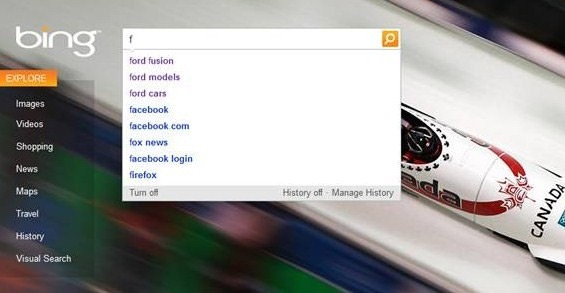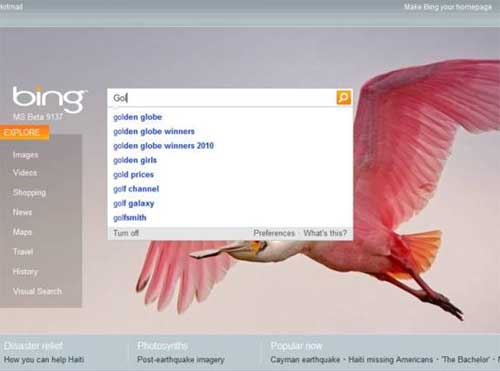Before the launch of Windows 8 last year, Microsoft moved to rebrand all of its products and services with new logos as part of its “One Microsoft” campaign. At the time, Bing wasn’t one of the services to get a new logo, but now that’s finally changing.
Microsoft announced today that it’s launching a brand new Bing complete with a new logo. Check it out:

Scott Erickson, Senior Director, Brand and Creative, said in a blog post that the new logo came from Microsoft’s desire to move Bing beyond the traditional search page. The new Bing logo represents a search engine that Microsoft hopes will be everything to everyone – from traditional Web search to instant translations using Windows Phone.
Speaking of traditional Web search, Bing isn’t just getting a new logo. Microsoft has also completely revamped its search engine to provide better, instant results. The first part of that is a new landing page for Bing complete with the new logo and a couple of cosmetic changes. See if you can tell the difference:
Old Bing

New Bing

The landing page design may not have changed much, but the actual search results page received quite the facelift. Now bing displays images more prominently at the top while Bing’s own version of Knowledge Graph – Satorii – is given more space on the side.
Old Bing

New Bing

The new Bing is also getting some new features. The first feature is called Page Zero – an evolution of its autosuggest feature. The old autosuggest would simply display a person, place or thing in the autosuggest box for you to click on through. In Page Zero, the subject’s bio is prominently display alongside quick links to news, images, videos and gossip about the subject.

The other new feature – Pole Position – is a lot like Google Now. It brings you information, such as the current weather, right to the top of the search bar:

On a final note, Microsoft says that the new Bing is optimized to display correctly on mobile devices. Improvements were already made to how Bing is displayed on Windows Phone devices, but now those same optimizations are available to users on iOS and Android devices.
If you want to try out the new Bing for yourself, hit up Microsoft’s new preview page.









